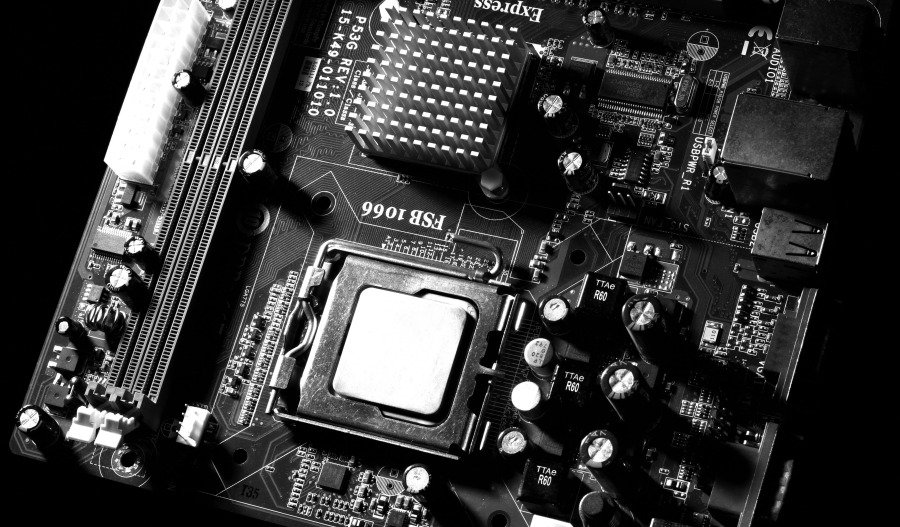Corruption scandals within big data, semiconductors and tech giants, three of China’s most strategically significant industries, are creating deep rifts with Beijing officials. This is at a time when the country is embarking on the latest tech war with the United States.
It’s understood that within the Chinese province of Guizhou – a showcase for China’s digital ambitions to attract domestic and foreign tech giants – the central government’s anti-corruption crackdown has brought down a string of officials over the last few months.
Other sectors, including the chip industry, have also been caught up in ongoing anti-corruption investigations.
After the country's first national big data pilot zone was approved in 2016, big data has become a pillar industry in Guizhou province.
This served as a testing ground for industry development and new policies in areas such as data-sharing.
Since then, a steady power supply, plus a major push to develop its infrastructure and supportive policies for tech companies have helped transform Guizhou into a prime location for big data centres.
Between January and September last year investment in Guizhou’s big data sector reached 28 billion yuan (US$3.9 billion), a 25% year-on-year increase.
However, a government crackdown on corruption threatens to undermine the region’s attraction to local and foreign investors as a place to do business.
It’s not uncommon for China’s anti-corruption drives to closely monitor major strategic initiatives.
As a result, key sectors like big data, semiconductors and technology can be ongoing targets for graft-busters, according to Vivian Zhan Jing, a political scientist at the Chinese University of Hong Kong.
“… the clean-up in the hi-tech industries not only reflects President Xi [Jinping]’s continued emphasis on anti-corruption crackdowns but also underscores the increasing importance of these industries to China’s national interests and security,” she said.
Earlier this month Li Gang, director of the province’s National Defence Science and Technology Industry Office and the former chief engineer at the Guizhou Big Data Development Administration, was placed under investigation by the local anti-corruption watchdog on suspicion of corruption.
Two former heads of the Big Data Development Administration – Jing Yaping, who retired in October, and her predecessor Ma Ningyu, who later became mayor of the provincial capital Guiyang, were already facing similar investigations.
As well as playing a key role in developing the sector in Guizhou, Ma was also instrumental in talks that led to Apple setting up iCloud servers in the province in 2018.
In February, Liu Lan, deputy mayor of Guiyang, who was in charge of the city’s big data policy and development was also investigated.
Then there’s Zhao Weiguo, former chairman of Tsinghua Unigroup – a key player in the semiconductor self-sufficiency campaign – who recently received a death sentence suspended for two years.
Zhao is believed to have embezzled national assets worth more than 470 million and cost the state a further 890 million yuan by providing favours to friends and family.
According to Stefanie Kam who researches Chinese politics at Nanyang Technological University in Singapore, the tumultuous external uncertainties engendered by the US-China trade war have heightened China’s desire to stamp out corruption through domestic reform.
“… today the legitimacy of the CCP also hinges not only on economic performance but public perception of the Party’s moral aptitude and their ability to uphold good governance while being of good moral character.”
The release of an anti-corruption report last week also suggests that the internet sector may be another area under investigation.
The Haidian district court in Beijing said that of the 350 non-government corruption cases it dealt with between 2020 and 2024, more than a third were related to internet companies.
The total amount involved was more than 305 million yuan, and the number of such cases has been on the rise over the past three years.
It’s also understood that digital platforms have quasi-governmental power over regulations, user access and content – and this, coupled with little outside oversight, creates opportunities for corruption.
However, even if technology has made some crimes more sophisticated, the country’s corruption busters are also looking to hi-tech tools such as big data and artificial intelligence to detect crimes that are more difficult to find through traditional methods.
“Even the most intricate and deeply layered schemes [of corruption] can ultimately be exposed through big data analysis, leaving no place to hide,” the Commission for Discipline Inspection (CCDI), the country’s top anti-corruption watchdog, noted in January.



